In today’s job market, every advantage you have is crucial. Even something as small as your resume can determine whether or not you land the job of your dreams. A well-written resume can help you stand out from the crowd and give you the edge when applying for programs coordinator jobs and other positions that require extensive knowledge of programming languages, data structures, and algorithms. Program manager resumes aren’t all that different from other types of resumes. At their core, they are just a document that supports your job application by introducing yourself, highlighting your transferable skills and past experiences, and demonstrating why you’re an excellent fit for the position you’re applying to. Writing a resume can be challenging for many people — it’s not easy to condense all of your experiences into one accessible document! But with these tips and tricks on writing an effective program manager resume in mind, it doesn’t have to be scary or complicated.
Program Manager Resume Example

Download This Program Manager Resume as PDF
Project Manager Resume Example
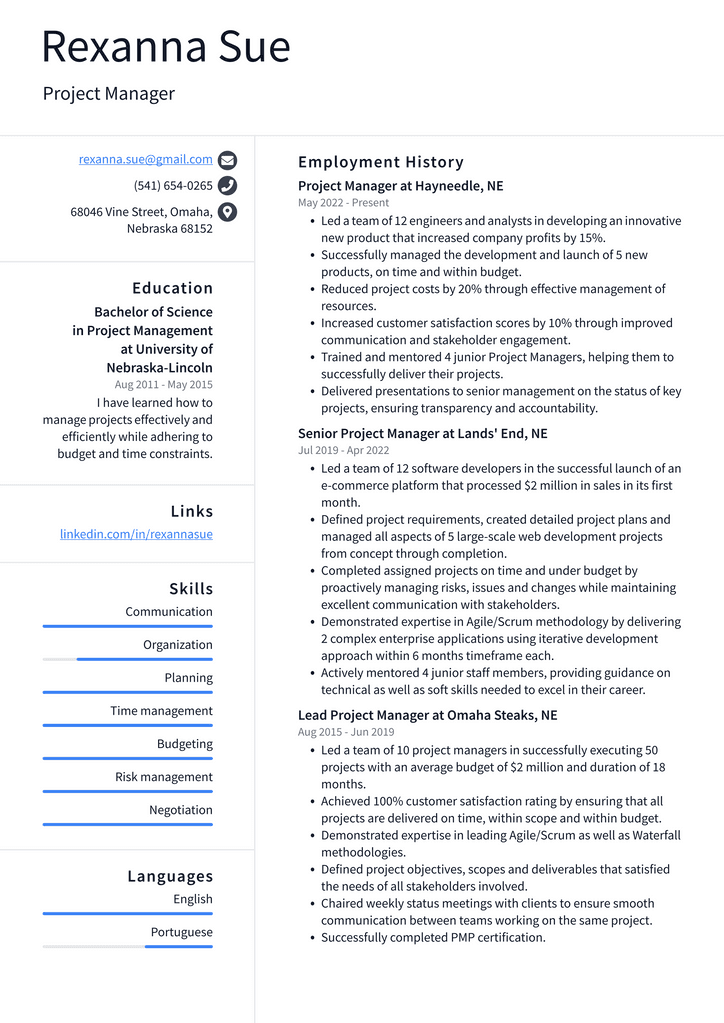
Download This Project Manager Resume as PDF
Product Manager Resume Example
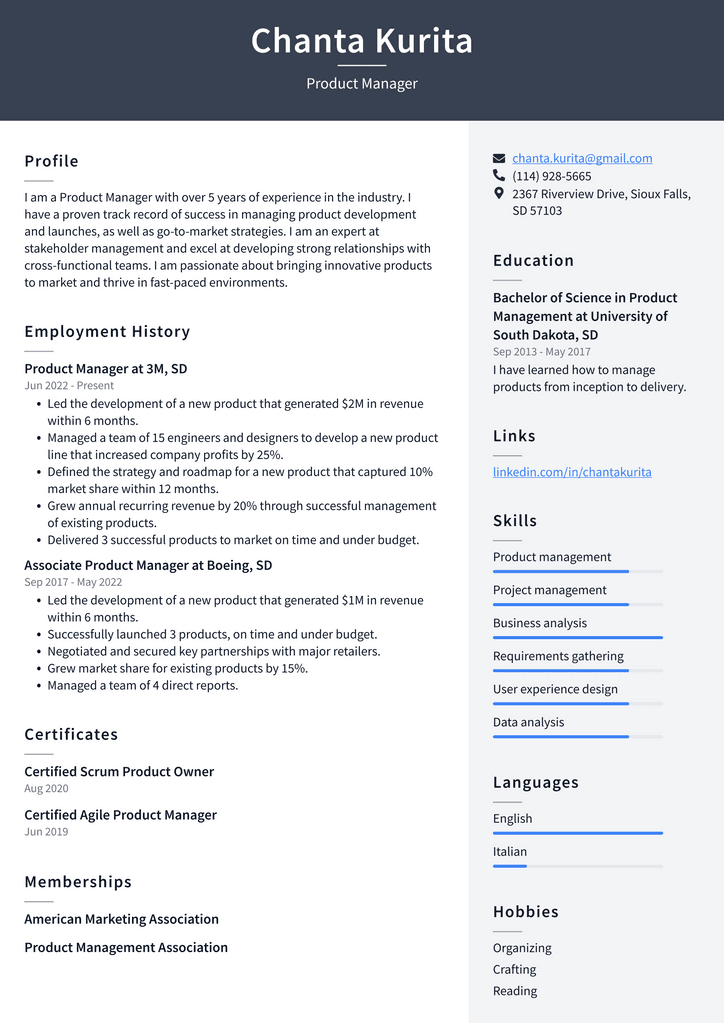
Download This Product Manager Resume as PDF
Development Manager Resume Example
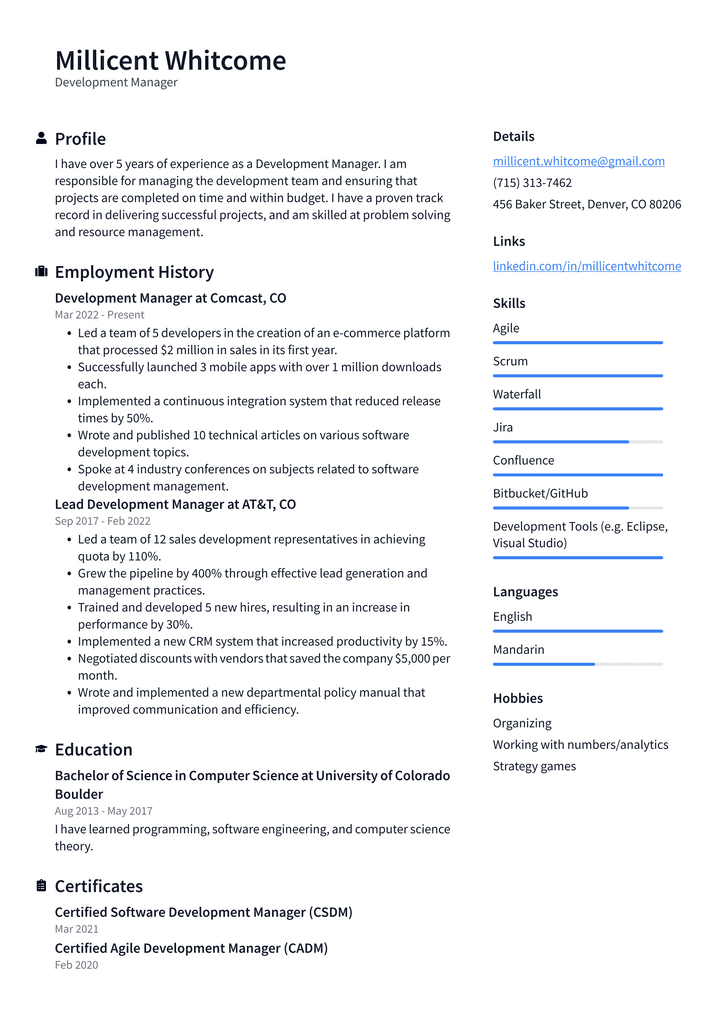
Download This Development Manager Resume as PDF
Technical Program Manager Resume Example
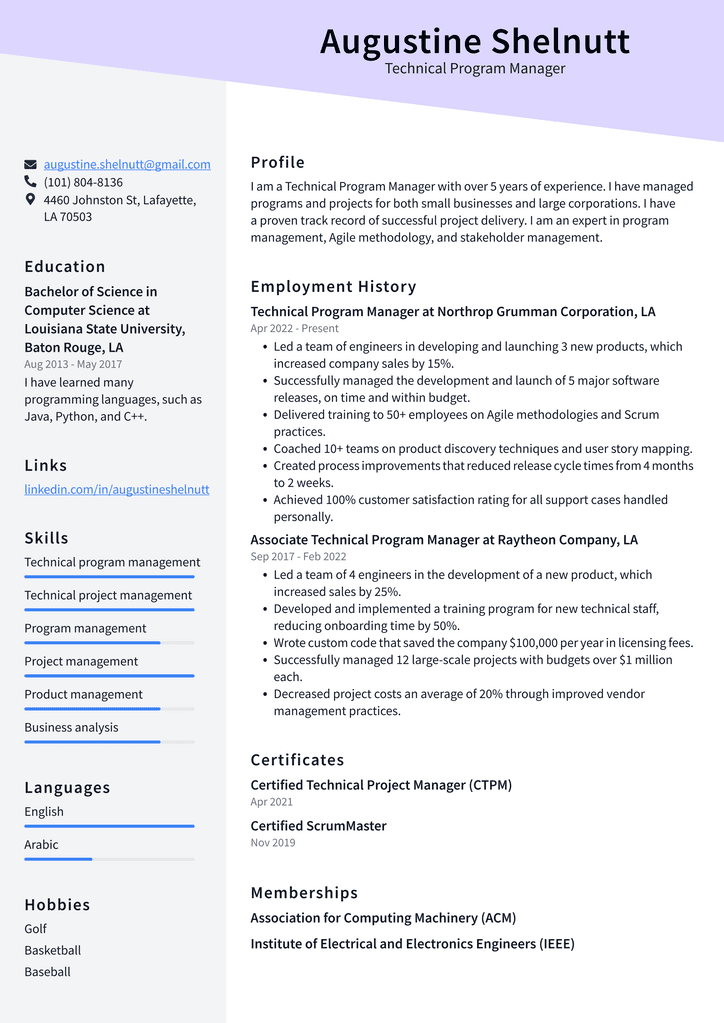
Download This Technical Program Manager Resume as PDF
Engineering Manager Resume Example
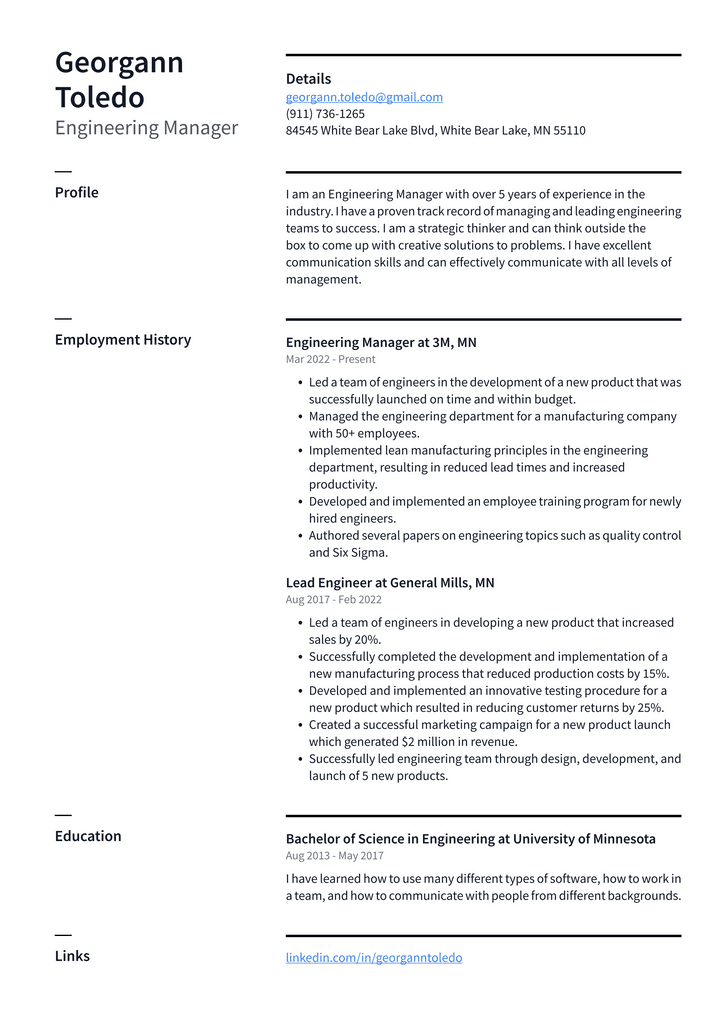
Download This Engineering Manager Resume as PDF
IT Manager Resume Example
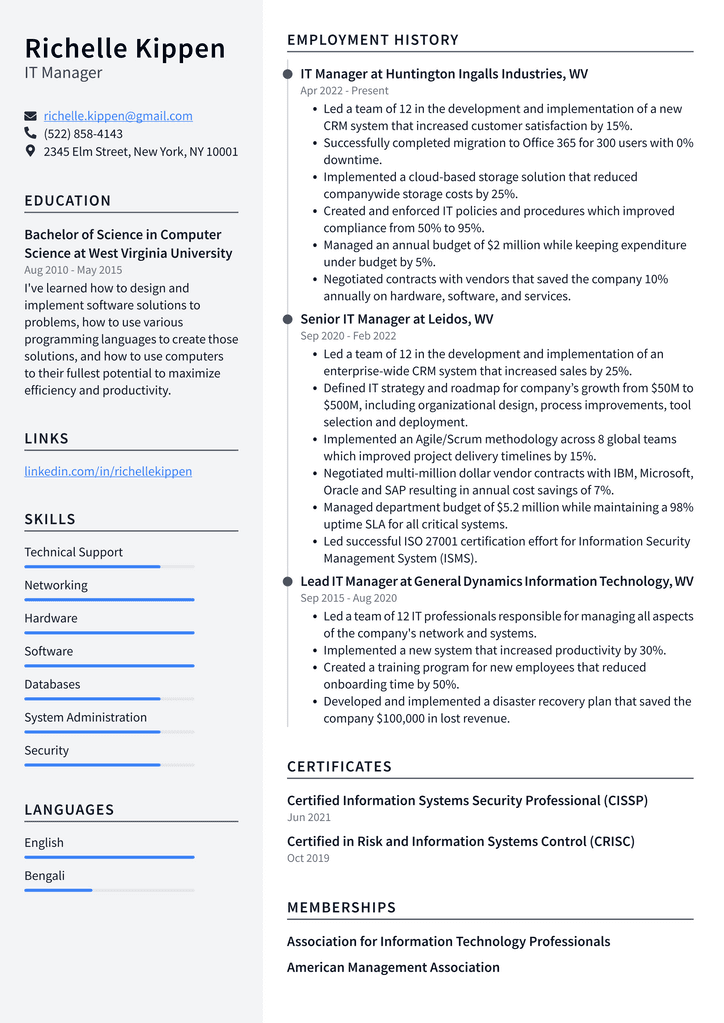
Download This IT Manager Resume as PDF
What is a Program Manager?
A program manager is a professional who oversees and leads the different departments and teams involved in a given project. They work on various project types, including software engineering, IT, product development projects, and more. A program manager’s main priority is ensuring the project remains on track and meets all of its deadlines. In addition, they are responsible for tracking and managing the project’s progress, communicating with stakeholders to identify and address any concerns or issues, and ensuring that all project team members have what they need to do their jobs effectively. Program managers often manage budgets, timelines, and project risks. They also usually report their progress to higher-ups and stakeholders, such as the program sponsor, project manager, and other stakeholders who may be vested in the project’s outcome.
Decide Which Tools to Use
If you’re writing a resume for a software engineering job, it’s a safe bet that your resume will have some technical focus. In these cases, you may want to consider using a functional resume. A functional resume is a document that emphasizes your transferable skills, work history, accomplishments over your educational background, and other details that aren’t directly relevant to the job you’re applying to. Functional resumes are often best for people making a career change who need to downplay their previous experience or educational history to get their foot in the door. They’re also helpful for people applying to project-based jobs that don’t require a lot of specific technical experience.
The Basics: fonts and font sizes
When designing your resume, there are a few things you should always keep in mind. First and foremost, your resume is an extension of you — so it should be visually appealing but not overly flashy. It should be easy to read and have enough white space to make it seem inviting. A lot of people tend to use Times New Roman for their resume — and good reason. It’s a safe font that looks professional but isn’t too distracting or complex. You should also ensure that the font is large enough to be legible. Many people use 12-point font for their resume, but you should ensure that the font is large enough so that your resume isn’t mistaken for a grocery list. Font size can be somewhat subjective, so test your resume with a few different font sizes before you send it off!
Organizational Skills and Responsibilities
One of the first things many hiring managers will look at is your work history. This is where you will outline your previous jobs and duties, so it must be detected thoroughly. When tracing your work history, start with your most recent position first, followed by the places that led up to it. This will make it easier for hiring managers to pursue your career path and see how your skills have evolved. Next, start each work history section with a brief job title and company name description. This way, you don’t have to re-state this information for each position — you can refer back to the description you wrote at the beginning of each section.
Key Skills and Qualifications
Your resume should be more than just a list of previous positions. Instead, it should be a showcase of your skills and abilities. This is especially important if you’re applying for a job that requires in-depth knowledge and experience in a particular field. When outlining your skills and qualifications, it’s important to note that you don’t want to list your skills in general terms (i.e., “I am a skilled writer.”). Instead, you want to show hiring managers how to use those skills in your workflow. Encapsulating your skills in real-world scenarios will make them far more impressive to hiring managers.
Wrapping Up
Your resume will likely be the first thing hiring managers will see when they look at your application. Therefore, it’s a good idea to spend as much time on it as you would a cover letter — if not more! When writing your resume, make sure that you are honest and thorough. No points are awarded for being overly dramatic and exaggerating your skills and experience. Being over-the-top can do more harm than good — hiring managers will likely catch on and mark you off their list! If you follow these tips and tricks, you’ll have a solid resume. With the correct document, you’re one step closer to putting your foot in the door and getting the job of your dreams. And who knows? It could be the start of a whole new career path!